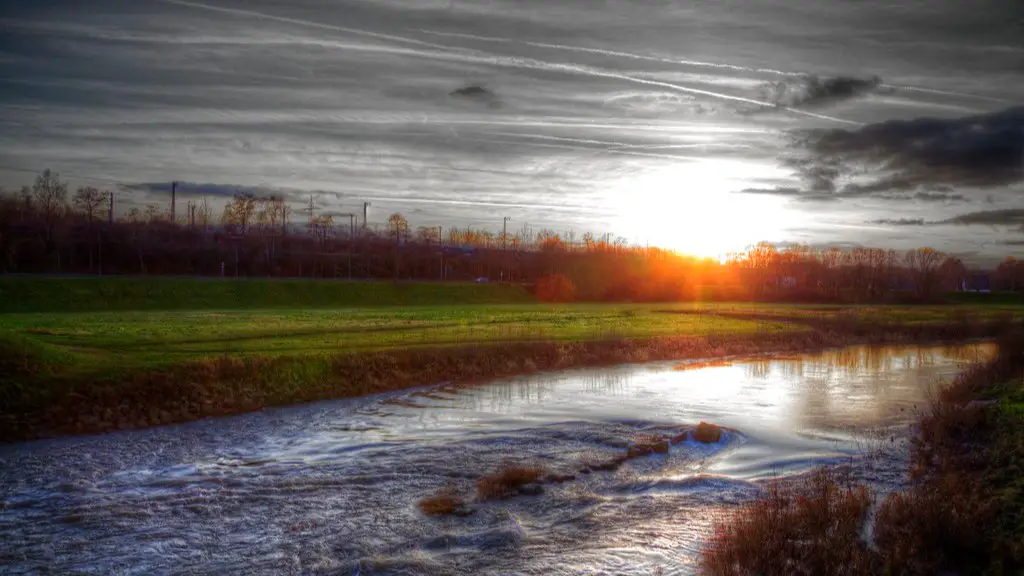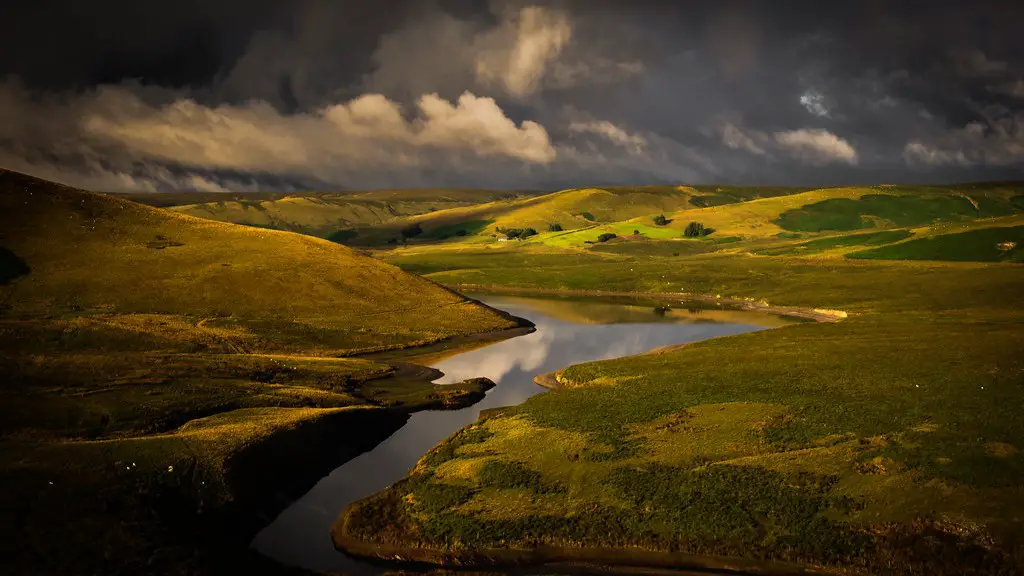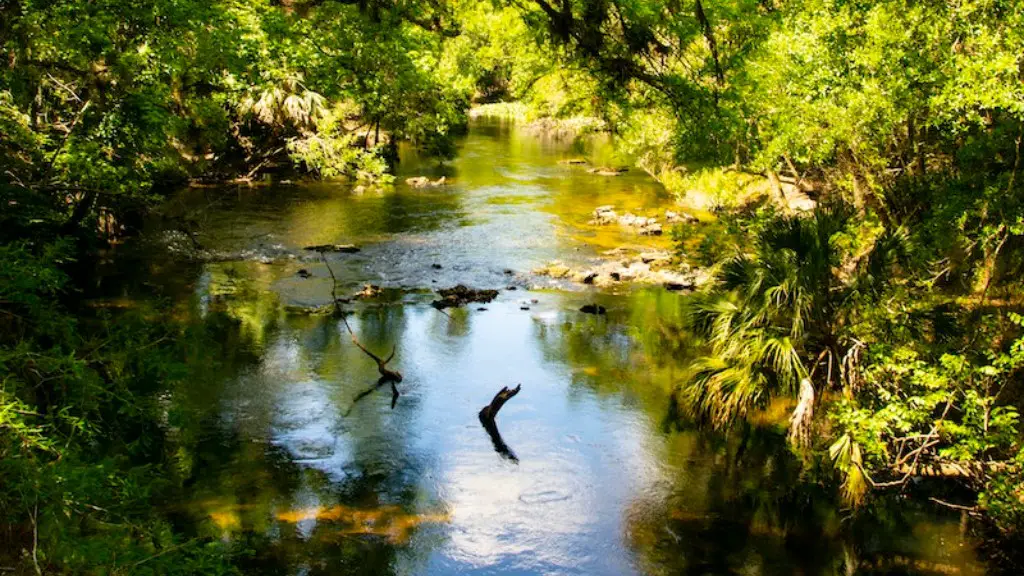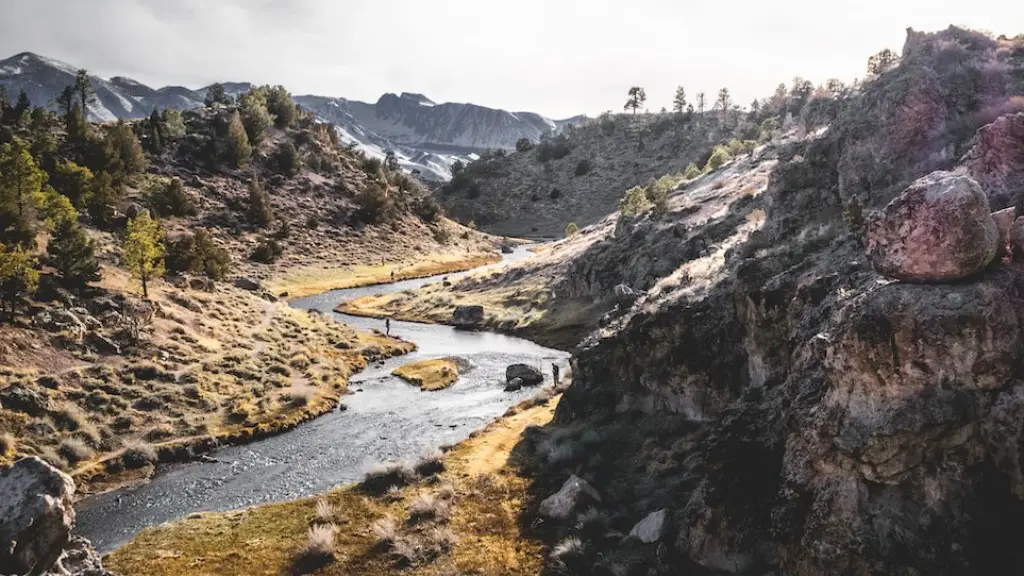Recreational Opportunities
The mighty Mississippi River has been a part of the American landscape for centuries, stretching from Minnesota to Louisiana and providing a playground for many different types of recreation. From fishing, swimming, and waterskiing to exploring the banks and bankside towns, there is no shortage of things to do when it comes to recreation along the Mississippi. Fishing is an especially popular pastime, with the river supporting a wide variety of species, from bass, catfish, and crappie to the threatened and endangered American paddlefish and pallid sturgeon. There are also several boat launches along the river for enthusiasts looking to explore its channels in deeper waters.
Environmental Impact
With so much recreational activities taking place along the Mississippi, there are also environmental impacts to consider. There is evidence that certain types of recreational activities are leading to chemical and nutrient pollution, particularly from sewage and fertilizer runoff. With over 15,000 miles of the Mississippi River under human influence, the risk of over-fishing, trash dumping, or other types of aquatic nuisance activity is compounded. The U.S. Environmental Protection Agency (EPA) has listed sections of the Mississippi River as “impaired” in recent years as a result of these activities.
Economic Implications
Despite the potential environmental concerns related to recreational activities on the Mississippi River, there are also clear economic benefits that come from recreational tourism. According to the Great River Road National Scenic Byway, the estimated economic impact of recreation and tourism on the Mississippi River is in the billions of dollars. This includes activities such as fishing, boating, and camping, as well as simply strolling along the riverside and enjoying the scenery. In addition, river towns have seen an influx of businesses catering to recreational activities, often providing jobs and additional revenue to local economies.
Sustainable Recreation
As the Mississippi River has become a popular destination for vacationers and locals alike, the importance of sustainable recreation has become increasingly clear. By participating in sustainable practices, recreational enthusiasts can help to protect the Mississippi River while still enjoying all the activities the river has to offer. This includes actions such as refraining from littering, purchasing eco-friendly gear, and respecting the aquatic wildlife and habitats. The Mississippi River has been providing recreational opportunities for generations and with responsible behaviors, the river will continue to do so for generations to come.
Boat Registration
For those who choose to explore the Mississippi River via boat, registering is a necessary step. Depending on the state, this process can vary, but often requires the completion of an application, proof of ownership of the boat, payment of certain fees, and registration of the boat’s hull number. Boat registration also helps ensure that recreational boaters understand the local boating laws and regulations and that the state has an accurate count of all boats using the Mississippi River.
Educational Opportunities
The Mississippi River is also a source of education, providing learning opportunities for students of all ages. There are numerous educational programs focused on the history and ecology of the river, allowing students to gain a better understanding of the river, its importance, and the steps necessary for its protection. River-focused nonprofits and other organizations often offer such programing, which can help students to appreciate the Mississippi River in all its splendor.
Cultural Significance
For many, the Mississippi River is about more than just recreation; it’s a source of culture and identity. Throughout its course, the Mississippi River has served as a hub for many different art forms, from literature such as Huckleberry Finn to films like Mississippi Burning. Furthermore, the river is integral to the cultural heritage of numerous Native American tribes, such as the Sioux, Cheyenne, and Cherokee. From blues to country, the Mississippi River has influenced numerous musical recordings, creating a living legacy that reflects the importance of the river in American history.
Creating a Conservation Ethic
As more people participate in recreational activities along the Mississippi River, they are also becoming increasingly aware of the need to protect the river’s resources. Not only do sustainable practices help to preserve the river’s natural beauty, but they also have an economic impact: a healthy Mississippi River helps to ensure continued recreational use. By promoting a conservation ethic amongst recreational users, policymakers and citizens can help to ensure that the river remains an integral feature for generations to come.
Developing New Strategies for Conservation
In recent years, new strategies for conservation have been developed to protect the Mississippi River and its resources. For example, the expanded use of Smartphone applications provides recreational users with real-time information about hazards, such as hazardous water levels, as well as advice on how to minimize their impact on the environment. The introduction of non-lethal deterrents, such as noise-makers, also helps to reduce disturbance to local wildlife. These methodologies provide recreational users with practical ways to help protect the Mississippi River while still enjoying all the activities it has to offer.
The Role of Conservation Organizations
Non-profit organizations have been integral in the advocacy for the protection of the Mississippi River. For example, the Mississippi River Fund works to support projects that reduce the impact of recreational activities, such as the installation of buoys to reduce the effect of boats on sensitive fish habitats. Furthermore, the conservation organization American Rivers works to protect the Mississippi River from water pollution, advocating for increasingly stringent regulations to protect the river’s resources.
Advocating for the Protection of the Mississippi River
Recreational activities are integral to the life of the Mississippi River, and with responsible behaviors, the river can be enjoyed by all. In addition to sustainable practices, it’s important for recreational users to advocate for the protection of the river. By speaking out on the importance of the Mississippi River, participating in river cleanups, and donating to conservation organizations, we can help to ensure that future generations will also be able to appreciate and explore this majestic river.
Youth Education Programs
Youth education programs are an important way to ensure the protection of the Mississippi River. Through such programs, children learn about the river’s history, its importance, and the threats it is facing. For example, the Mississippi River Fund’s Field Research Experience program brings together undergraduate and high school students to work together on research projects that can help to protect the river. This type of program also helps to develop the leadership and advocacy skills necessary for protecting the river and fighting for its future.
River Access
It’s not just recreational activities that help to ensure the protection of the Mississippi River; it’s also access. By providing public access points along the river, individuals and families can enjoy the river without the need for a boat and without having to drive far away. In addition, public access points help to reduce the amount of vehicles needed on the river, reducing the risk of habitat destruction.
Environmental Policy
The future of the Mississippi River is also dependent on the implementation of environmental policies. For example, the adoption of the Clean Water Act in 1972 initiated the implementation of more stringent regulations around water pollution, helping to protect aquatic species and habitats from the harmful impacts of pollutants. With the adoption of such environmental policies, recreational users have an incentive to maintain the integrity of the river’s landscape, helping to ensure its protection for future generations.



